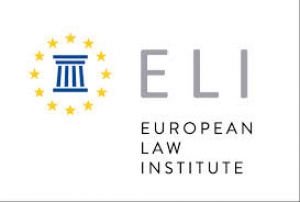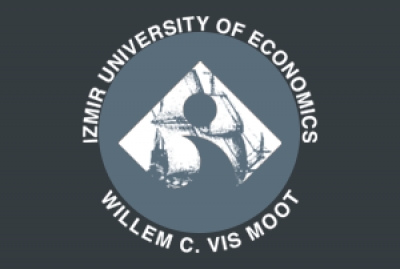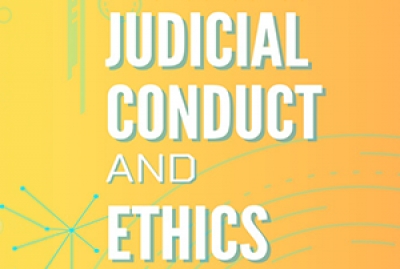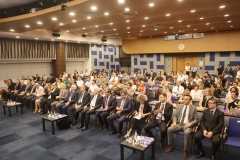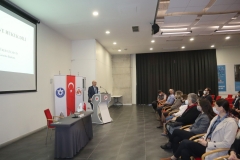
Faculty of Law
HUK 473 | Course Introduction and Application Information
| Course Name |
European Union Law
|
|
Code
|
Semester
|
Theory
(hour/week) |
Application/Lab
(hour/week) |
Local Credits
|
ECTS
|
|
HUK 473
|
Fall/Spring
|
3
|
0
|
3
|
5
|
| Prerequisites |
None
|
|||||
| Course Language |
Turkish
|
|||||
| Course Type |
Service Course
|
|||||
| Course Level |
First Cycle
|
|||||
| Mode of Delivery | - | |||||
| Teaching Methods and Techniques of the Course | - | |||||
| Course Coordinator | ||||||
| Course Lecturer(s) | ||||||
| Assistant(s) | - | |||||
| Course Objectives | This is a course which aims to introduce European Union (“EU”) institutions and EU law. In this course, students will gain knowledge of the EU’s institutional structure, functioning and the membership process. |
| Learning Outcomes |
The students who succeeded in this course;
|
| Course Description | Detailed examination of EU law and legal process, mainly the founding treaties of EU, EU acquis communataire, EU institutions and the Court of Justice. Legal extent of relations between EU and member states. |
|
|
Core Courses | |
| Major Area Courses | ||
| Supportive Courses | ||
| Media and Management Skills Courses | ||
| Transferable Skill Courses |
WEEKLY SUBJECTS AND RELATED PREPARATION STUDIES
| Week | Subjects | Related Preparation |
| 1 | History and General Structure | Güneş, p. 1-47. |
| 2 | Turkey-EU Relations | Akçay, Belgin, Türkiye ve AB İlişkileri Yeni Gündem, Seçkin, Ankara, 2014. |
| 3 | Institutional Structure | Güneş, p. 47-141. |
| 4 | Legal Order (Basic Doctrines) | Güneş, p. 160-176. |
| 5 | Legal Order (Sources) | Güneş, p. 141-160. |
| 6 | Legal Order (Legislative Procedure) | Güneş, p. 176-193. |
| 7 | Legal Order (Implementation of Laws) | Güneş, p. 193-201. |
| 8 | Midterm Exam | |
| 9 | Judicial System in General | Güneş, p. 201-205. |
| 10 | Judicial System (Cases) | Güneş, p. 205-231. |
| 11 | Internal Market (Competition Rules, Principles of Freedoms) | Güneş, p. 231-274. |
| 12 | Free Movement of Goods | Güneş, p. 274-308. |
| 13 | Free Movement of Persons | Güneş, p. 308-336. |
| 14 | Free Movement of Services | Güneş, p. 336-350. |
| 15 | Free Movement of Capital | Güneş, p. 350-365. |
| 16 | Final Exam |
| Course Notes/Textbooks | |
| Suggested Readings/Materials | Güneş, Ahmet M., Avrupa Birliği Hukukuna Giriş, Oniki Levha, İstanbul, 2016; Bayram, Mehmet Hanifi, Avrupa Birliği Hukuku Dersleri, Seçkin, Ankara, 2015; Karluk, Rıdvan, Avrupa Birliği, Beta, İstanbul, 2014; Günuğur, Haluk, Avrupa Birliği, AEDM, Ankara, 2014; Akçay, Belgin, Türkiye ve AB İlişkileri Yeni Gündem, Seçkin, Ankara, 2014, Keskin, M. Hakan, Avrupa Birliği El Kitabı Mitos’tan Lizbon’a, Seçkin, Ankara, 2016. |
EVALUATION SYSTEM
| Semester Activities | Number | Weigthing |
| Participation |
1
|
10
|
| Laboratory / Application | ||
| Field Work | ||
| Quizzes / Studio Critiques | ||
| Portfolio | ||
| Homework / Assignments |
1
|
30
|
| Presentation / Jury | ||
| Project | ||
| Seminar / Workshop | ||
| Oral Exams | ||
| Midterm |
1
|
30
|
| Final Exam |
1
|
30
|
| Total |
| Weighting of Semester Activities on the Final Grade |
1
|
60
|
| Weighting of End-of-Semester Activities on the Final Grade |
1
|
40
|
| Total |
ECTS / WORKLOAD TABLE
| Semester Activities | Number | Duration (Hours) | Workload |
|---|---|---|---|
| Theoretical Course Hours (Including exam week: 16 x total hours) |
16
|
3
|
48
|
| Laboratory / Application Hours (Including exam week: '.16.' x total hours) |
16
|
0
|
|
| Study Hours Out of Class |
16
|
2
|
32
|
| Field Work |
0
|
||
| Quizzes / Studio Critiques |
0
|
||
| Portfolio |
0
|
||
| Homework / Assignments |
1
|
20
|
20
|
| Presentation / Jury |
0
|
||
| Project |
0
|
||
| Seminar / Workshop |
0
|
||
| Oral Exam |
0
|
||
| Midterms |
1
|
20
|
20
|
| Final Exam |
1
|
30
|
30
|
| Total |
150
|
COURSE LEARNING OUTCOMES AND PROGRAM QUALIFICATIONS RELATIONSHIP
|
#
|
Program Competencies/Outcomes |
* Contribution Level
|
||||
|
1
|
2
|
3
|
4
|
5
|
||
| 1 | To be able to possess the knowledge in legal terminology, concepts and principles. |
|||||
| 2 | Solves the legal problems with an analytic and integral point of view. |
|||||
| 3 | Evaluates the legal knowledge and abilities obtained with a critical approach. |
|||||
| 4 | Evaluates the developments in legal theory and practice by monitoring local, international and interdisciplinary dimensions. |
|||||
| 5 | Is conscious of social, professional and scientific principles of ethic behaviour. |
|||||
| 6 | Takes responsibility in solving problems by creative and innovative thinking. |
|||||
| 7 | Interprets the sources of law by ways of legal methodology. |
|||||
| 8 | To be able to interpret the legal norms with a sense of justice respectful to human rights and in the light of principles of democratic, secular and social state of law. |
|||||
| 9 | To be able to use the daily scientific sources and court judgments in the framework of life time learning approach. |
|||||
| 10 | Informs the related persons and institutions about legal matters both verbally and in written. |
|||||
| 11 | Monitors the daily legal information/court decisions and interacts with the colleagues in a foreign language (“European Language Portfolio Global Scale” Level B1). |
|||||
| 12 | Uses the information and communication technology together with the computer programs in a level required by the area of law (“European Computer Driving Licence, Advanced Level”). |
|||||
*1 Lowest, 2 Low, 3 Average, 4 High, 5 Highest
NEWS |ALL NEWS

The only team from Izmir
Izmir University of Economics (IUE) Faculty of Law students Arda Ataoğuz, Göktuğ Şirin and Ömer Ateş represented our country in Willem C.

Joint paper of res. asst. Serenay Kara and Prof. Dr. Zeynep Şişli was presented at ILERA European Congress 2022

Dr. Ebru Akduman gave seminars at Niccolo Cusano University, Rome on European Union-Turkey Relations.
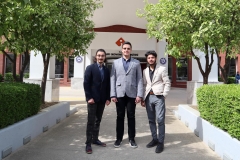
‘Mock trial’ brought an award
Oğuzhan Yıldırım, İnan Bakır and Süleyman Gürkan Emre, students of Faculty of Law, Izmir University of Economics (IUE), won the third prize
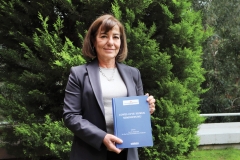
They wrote the book of corona law
Izmir University of Economics (IUE) Faculty of Law, which organized a symposium to clarify different issues such as "protection of personal data",





